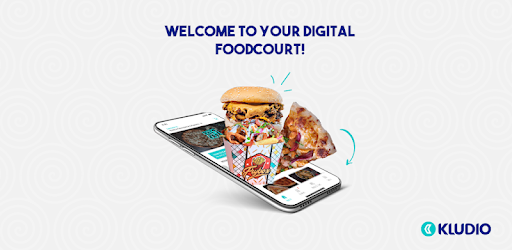
Kludio is a full-stack cloud kitchen based in Dhaka that prefers to call itself a digital food court. Cloud kitchens have become a thing over the past few years as food delivery companies continue to gain popularity across markets. Generally speaking, cloud kitchens are restaurants that don’t maintain a dine-in outlet and instead, sell directly to customers through on-demand food delivery platforms or they themselves directly sell and deliver to customers. Generally speaking, a cloud kitchen may host multiple restaurants under one roof, more like a coworking space, improving efficiency for everyone. Since they don't offer dine-in, these kitchens can operate out of less expensive locations and share resources, improving cost structure for everyone involved.
While Kludio is a cloud kitchen it does not follow the traditional cloud kitchen model where these kitchens depend on food delivery apps for orders. That’s where full-stack and food court, that Kludio puts along with its name, comes in. Full-stack cloud kitchen means Kludio controls every aspect of its business, starting from sourcing raw materials to making the food to collecting order to delivery.
For Kludio, it does everything from making the food, collecting orders from customers through its independent social media channels, website, and app, and then using its own logistics to deliver the food to customers. That’s also why Kludio calls itself a digital food court.
Unlike restaurants and other cloud kitchens that work with food delivery companies such as Foodpanda, Kludio does not rely on food delivery apps for customers. It controls the customer relationship but going directly to customers using digital channels. To that end, Kludio is a DTC for food.
Founded in 2019, Kludio launched a number of brands including Dough On The Go, Fry Box, and Fish & Chips, all owned and managed by Kludio. While traditional cloud kitchens only manage food preparation, Kludio manages everything food, technology, and logistics.
****
Full-stack, DTC, and aggregation
There are certain upsides in becoming an independent digital food court or a full-stack cloud kitchen for that matter. The chief among them is demand control. Since Kludio serves its customers directly, it controls the customer relationship, which can be critical in a world increasingly controlled by the aggregator. As a result, Kludio does not require to pay any commission to anyone, can keep its customer data, and reach out to customers anytime they want. All these become complicated when you work with an aggregator that many restaurants have come to realize of late working with food delivery platforms who eventually come to use their demand control and market power to dictate the terms of relationship with restaurants.
There are downsides to such a model too, particularly if you want to build a business at scale. The grocery value chain is quite complex and resources hungry. Preparing high quality and popular food brands is not easy and inexpensive either. While owning customer relationships is critical and beneficial, bringing a large number of digital customers to your app and web consistently, if what you offer is only a small number of mildly popular options, should not be easy.
The central challenge of any DTC brand is that it needs to fight with aggregators for customer attention. And often customers prefer aggregators because they get more options and more benefits from an aggregator that a small DTC brand can’t offer.
This is not a problem if you are happy with building a niche business, which most restaurants are. But if you want to build a business at scale, that’s precisely why Kludio wants to be a digital food court because while physical restaurants have many limitations when it comes to the number of customers it can serve, online practically eliminate the limitation of scale, managing everything in-house including food brands you sell could be a limiting choice.
To that end, Kludio will eventually have to open up its platform for third party brands and serve them with both technologies and logistics and space and become an aggregator itself. (Recently e27 published a great story on Kludio, read it here.)
